People are making ‘digital clones’ of themselves — to do their work for them
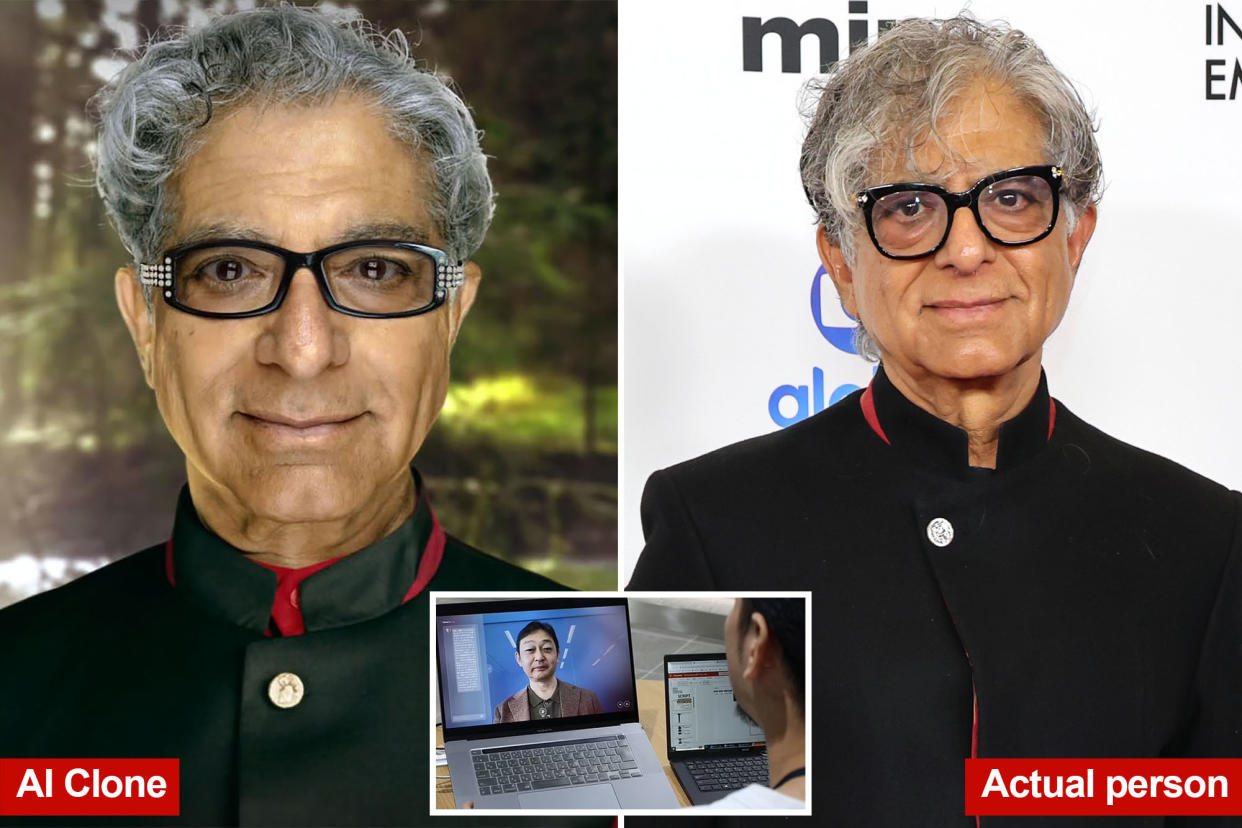
Talk about an “ageless body.”
Holistic health advocate Deepak Chopra, 77, is one of several people who have digitally “cloned” themselves to do their work for them. Chopra’s lifelike-AI — originally conceived in 2019 — fills in on Zoom calls, the Daily Mail reports.
Delphi, touted as the world’s first digital cloning platform, uses data from podcasts, videos, PDFs and other content to develop a clone that can mimic the user’s thoughts and speech — and it can take as little as one hour.
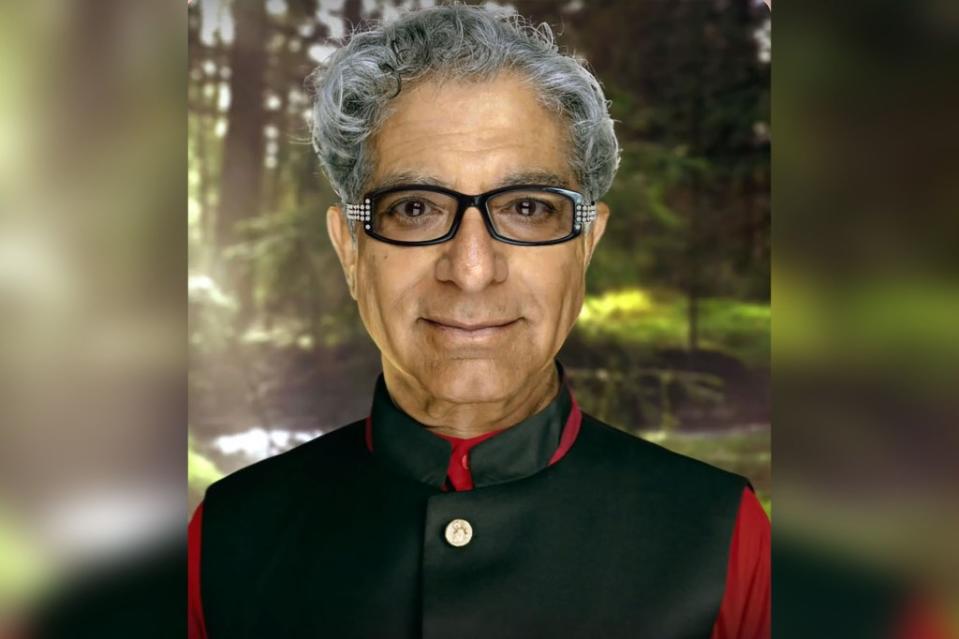
“The clone will learn how they think about the world,” Delphi co-founder and CEO Dara Ladjevardian told the Daily Mail this week. “We have a readiness score to show how ‘ready’ a clone is in representing that person. They can also upload their voice, so the clone learns how they speak as well.”
While the company does have a free version for “beginners and casual users,” most users will likely pay a monthly fee of either $29, $99 or $399 depending on the tier they choose.
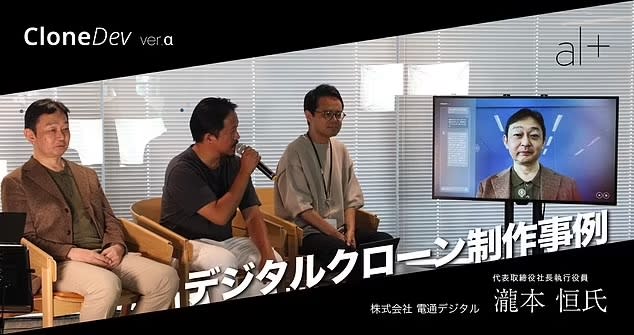
“Coaches or experts whose time is usually very expensive can now allow infinitely many people to learn from them in a personalized way, at a much lower cost (or for free),” Ladjevardian said.
Digital creators can link their clones to apps such as Instagram and Shopify, but Delphi says it takes a 10% to 20% commission based on tier level.
However, users can’t make a clone of just anyone. Photo ID must be provided to Delphi so people can’t create unauthorized clones to impersonate others.
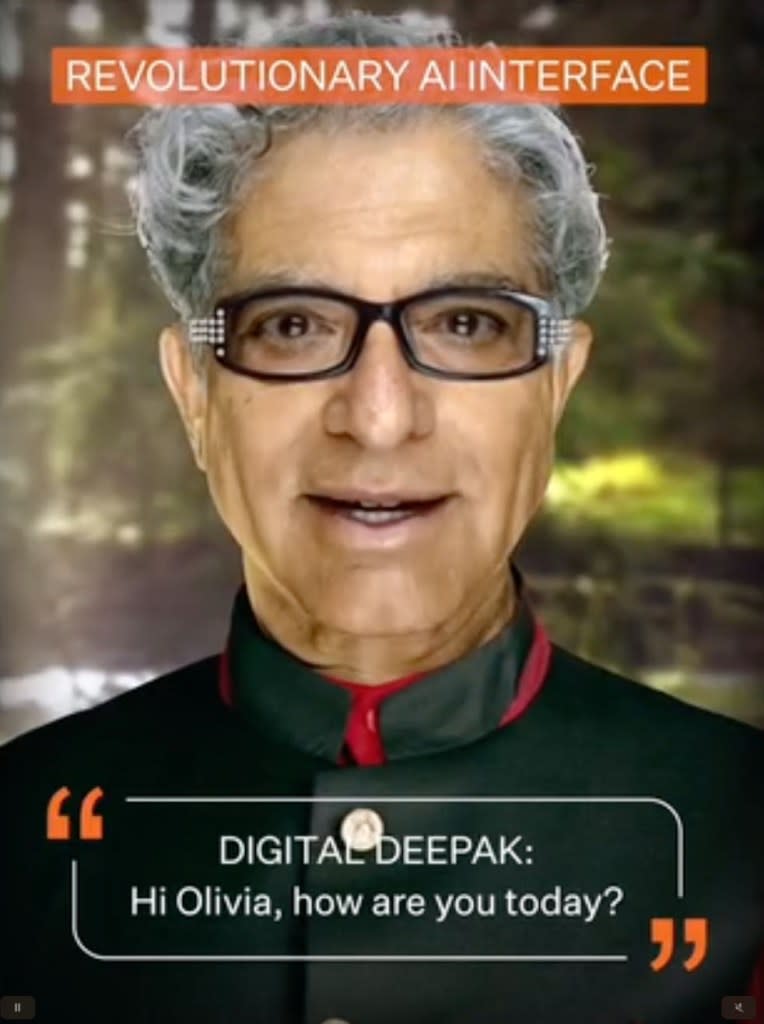
Ladjevardian believes that everyone will eventually have a digital clone of themselves.
“We will be releasing video calling end of May — so you can send your clone to a Zoom or Google meet to take meetings for you, answering questions and gathering information,” he told the Daily Mail.
Video clones already exist in Japan thanks to a company called Alt.AI that creates clones so realistic that they look impatient when you don’t respond to them via chat.
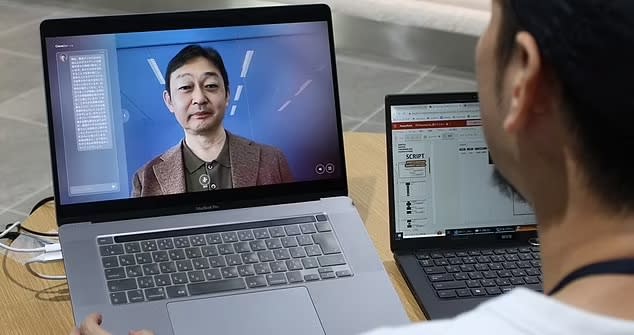
Using data from emails, Slack and other forms of communication, Alt.AI has been able to clone 100 employees and communicate on their behalf, allowing them to work and get paid even while they’re on vacation or away from their computers.
Alt.AI claims it is “the world’s first and only salary system that pays additional salaries to the employees themselves based on the productivity of their AI clones.”
Another company, Coachvox AI, creates digital clones that offer life coaching and business coaching based on the real person’s thoughts.
“It’s clear that coaches and thought leaders cannot ignore AI. As their audience becomes used to personalized knowledge, on-demand, around-the-clock, it makes sense that they position themselves to be that ever-present expert voice, within their specific industry,” Jodie Cook, founder of Coachvox AI, told the Daily Mail.
“As technology improves the digital clones will be more accurate and capable of performing complex tasks and holding very high quality conversations. Societal norms plus technological advancements equal mainstream behavior,” Cook added.

